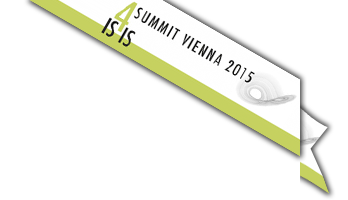
Matouš Hrdina
Faculty of Social Sciences, Charles University in Prague
Czech Republic
Let us imagine a group of people from various strata of society, who are passionate about social improvement and who strive to win over oppressive forces of state and bureaucracy, and make their society more democratic, free and open to the voices of the citizens. Thanks to the new communication tools such as social networking sites, they are able to self-organize, spread their ideas and engage other citizens in deliberative conversations about the most troublesome issues of their society... So far, this sounds like an utopia dreamed about by many enthusiastic advocates of new media’s possibilities for participation and democratization (See Rheingold 2002, Shirky 2008). Now, imagine that the aforementioned group is the French far-right party National Front, German islamophobic movement Pegida or any other similar group. Does the online participation and community self-organizing still look like an inherently positive thing?
The research of online political participation is frequently based on normative ideas about public discussion such as the Habermasian conception of Public sphere, Marxist concepts of social advancement (applied to this field by Castells 2012, and others) etc. This naturally leads to confirmation bias in empirical research and distorted findings about the perceived merits of online political participation. There are few questions that have to be discussed. Is an increase of political participation a positive thing per se? Is a “community“ also such an inherently positive term? And what about citizen self-organization? As always, the truth lies solely in the eye of the beholder.
During my research of political campaigning on SNS in the Czech Republic (Hrdina, Karascakova 2014), it became obvious that the participative, deliberative and communal aspects of communication were present not only in the communication strategies of the „usual suspects“ such as the Green or Pirate parties, but also very strongly among the extremist or conservative political parties on the far-right. Even more significant was the fact that the biggest political page on Czech Facebook did not belong to any party, but to the xenophobic movement „We do not want Islam in Czech Republic“. This interesting pattern was also identified in other political environments (like in the US political twittersphere by Connover et al. 2011), but the contemporary theorizing around the topic of political participation seems to lag behind the empirical research.
More precisely, the various theories of online political participation (i. e. Castells 2012, Dahlgren 2011, Benkler 2006) themselves are not flawed. The problem lies in their interpretation and in their application to only a very limited and particular research subjects. The genuine feelings and strive for democracy, freedom and participation are often attributed to groups closer to researcher’s mindset and denied from others. However, when growing body of empirical research starts to prove some unexpected consequences, it is necessary to adjust our explanation and reapply the theoretical background in a proper way.
Thus, there are few directions in which the research of online political communication can improve. First, it is necessary to stop perceiving online political communication as a special tool of dedicated activist groups who are “breaking from the pack“ and start dealing with the online activities of all social groups and classes equally.
Second, it would be beneficial to carefully consider the definitions and general language we use for our research. Words such as community, self-organization and participation are not to be perceived as inherently positive things, because there is no universal empirical proof of it.
Third, when applying the results of research of online political participation to discussions about e-government and bureaucracy issues, we have to carefully consider the vices and benefits of all the communication barriers, cleavages, checks and balances of the bygone days and discuss how we can transform or replace them in the new communication environments.